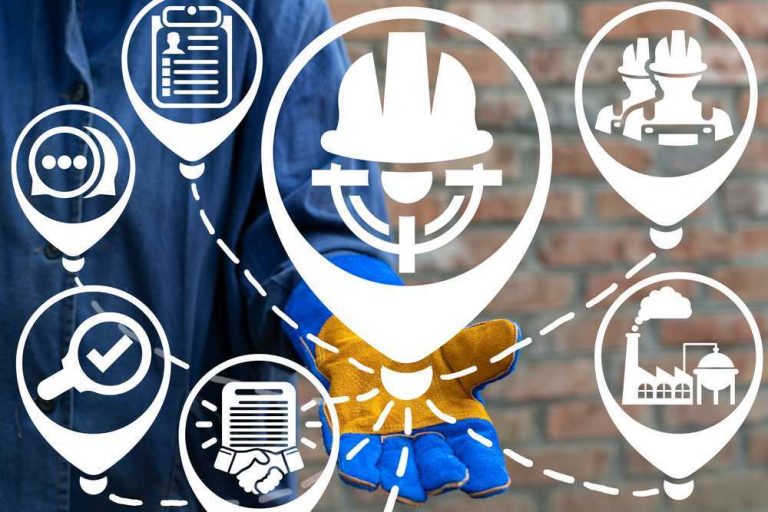Do you want to post a job opening but are unsure of the right interview questions to ask? That shouldn’t bother you. Conducting interviews is vital to getting the right talent to join your team.
The interview questions you ask candidates can reveal much about their skills, experience, personality, and potential fit within your company.
In this post, we’ll share the top 15 interview questions to help you find the best candidates for your team.
Interview Questions to Help You Find The Right Candidate
1. Can you tell me about yourself?
Okay, this one’s a no-brainer. These classic interview questions allow candidates to share their backgrounds, experiences, and interests. It helps you gauge their communication skills, confidence, and ability to summarize their career. Look for a clear, focused response that aligns with the job requirements.
Why Should You Ask This
It sets the tone for the interview, providing a comfortable starting point for candidates. It allows them to highlight their professional journey and personal interests.
How to Interpret
Clarity and Focus: Candidates should concisely summarize their career, touching on key experiences relevant to the role.
Confidence: Look for a confident delivery that balances professionalism with personal warmth.
Alignment: Assess if their experiences and interests align with the job and your company culture.
2. What interests you about this position?
Understanding why candidates are drawn to your role and company can reveal their motivations and passions. Find answers that demonstrate they have researched your company and understand how their skills can contribute to your goals.
Why Should You Ask This
This question helps you understand the candidate’s motivations and how well they’ve researched the role and company.
How to Interpret
Research and Preparation: Candidates should demonstrate knowledge about your company and the role.
Genuine Interest: Look for enthusiasm and why the role appeals to them.
Fit and Contribution: Assess if their skills and career goals match the position and how they envision contributing to your team.
3. Can you describe a challenging work situation and how you overcame it?
This question assesses problem-solving abilities and resilience. Pay attention to the candidate’s approach to resolving issues, critical thinking, and stress handling. Practical answers often include specific examples and outcomes.
Why Should You Ask This
Challenges are a part of any job. This question reveals a candidate’s problem-solving skills and resilience.
How to Interpret
Specificity: Look for detailed examples, including the challenge, actions taken, and the outcome.
Problem-Solving: Evaluate their approach to tackling the issue—did they break down the problem, seek help, or innovate a solution?
Learning Outcome: Candidates should reflect on what they learned from the experience and how it has shaped their professional growth.
4. How do you prioritize your tasks when managing multiple deadlines?
Time management and organizational skills are critical in most roles. Look for candidates who can articulate a clear strategy for prioritizing tasks, using tools or techniques, and maintaining productivity under pressure.
5. What is your most significant professional achievement?
This question allows candidates to highlight their strengths and what they consider important accomplishments. It can also provide insight into their career trajectory and ambition. Look for achievements that align with the skills and experiences necessary for the role.
Why Should You Ask This
This question highlights what candidates view as their significant accomplishments and what they consider valuable in their careers.
How to Interpret
Relevance: Assess if the achievement is relevant to the skills and experiences needed for the role.
Impact: Look for achievements that substantially impacted their previous employers, showcasing their potential value to your company.
Passion and Drive: Candidates should express pride in their achievements, indicating their motivation and drive.
6. How do you handle feedback and criticism?
Receiving and acting on feedback is essential for professional growth. Candidates should demonstrate an ability to accept constructive criticism gracefully and show examples of how they have used feedback to improve their performance.
7. What are your long-term career goals?
Understanding a candidate’s aspirations can help you determine if their career path aligns with opportunities at your organization. Look for candidates whose goals match your company’s growth and direction.
8. Can you give an example of how you worked as part of a team?
Teamwork is vital in most workplaces. This question assesses a candidate’s ability to collaborate, communicate, and contribute to group efforts. Look for specific examples that demonstrate teamwork skills and positive outcomes.
Why Should You Ask This
Teamwork is essential in most work environments. This question gauges a candidate’s ability to collaborate effectively.
How to Interpret
Role and Contribution: Understand the candidate’s specific role in the team and how they contributed to the project’s success.
Collaboration Skills: Look for examples highlighting strong communication, cooperation, and conflict resolution skills.
Outcome: Successful teamwork should lead to positive outcomes, demonstrating the candidate’s ability to work well with others.
9. How do you stay current with industry trends and developments?
Continuous learning and staying updated with industry trends are crucial for long-term success. Candidates should commit to professional development by reading industry publications, attending conferences, or participating in online courses.
Why You Should Ask This
Continuous learning and staying updated with industry trends are crucial for long-term success. This question helps you understand the candidate’s commitment to professional growth and their proactive approach to staying informed.
How to Interpret
Engagement with Industry: Look for candidates who regularly read industry publications, attend conferences, or take online courses.
Adaptability and Growth: Candidates should demonstrate an ability to adapt to new trends and incorporate new knowledge into their work.
Resourcefulness: Pay attention to the various sources and methods they use to stay current.
10. Describe a time when you had to learn something new quickly.
This question evaluates adaptability and learning ability. Look for candidates who can quickly acquire and apply new skills or knowledge effectively. Examples should include the context, the learning process, and the results achieved.
Why You Should Ask This
This question evaluates adaptability and learning ability, essential traits in fast-paced work environments where employees must often acquire new skills on the job.
How to Interpret
Learning Process: Look for candidates who can clearly articulate the steps they took to learn and understand a new concept or skill.
Application: Assess how they applied what they learned to achieve a positive outcome.
Initiative: Candidates should show a willingness to seek out resources and support to facilitate their learning.
11. What would you do in the first 90 days of this role?
This question assesses the candidate’s initiative and understanding of the job. Look for well-thought-out plans that indicate they have considered how to integrate into the team, understand the role, and start contributing quickly.
Why You Should Ask This
This question assesses the candidate’s initiative, planning skills, and understanding of the role. It reveals their approach to integrating into a new team and starting to contribute effectively.
How to Interpret
Preparation: Look for well-thought-out plans that indicate the candidate has considered how to get up to speed quickly.
Goals and Priorities: Assess their ability to set realistic and relevant goals for the first 90 days.
Understanding of Role: The candidate should demonstrate a clear understanding of the job’s responsibilities and how to begin adding value.
12. How do you handle stressful situations?
Stress management is crucial in any job. Candidates should provide examples of techniques they use to manage stress, such as prioritizing tasks, taking breaks, or seeking colleague support. Look for signs of resilience and effective coping strategies.
Why You Should Ask This
Stress management is crucial in any job. This question reveals how candidates cope with pressure and maintain productivity.
How to Interpret
Techniques: Look for specific strategies they use to manage stress, such as prioritizing tasks, taking breaks, or seeking support from colleagues.
Resilience: Assess their ability to remain calm and focused under pressure.
Experience: Candidates should provide examples of past stressful situations and how they successfully navigated them.
13. What do you know about our company?
A candidate who has done their homework will stand out. This question assesses their interest in your company and the role. Look for responses that genuinely understand your company’s mission, values, and recent developments.
Why You Should Ask This
A candidate who has done their homework will stand out. This question assesses their interest in your company, the role, and their research skills.
How to Interpret
Research and Preparation: Look for responses that demonstrate a genuine understanding of your company’s mission, values, and recent developments.
Alignment: Assess if their knowledge aligns with their career goals and how they envision contributing to your company.
Enthusiasm: A well-informed candidate will show enthusiasm and a genuine interest in the position.
14. Why are you leaving your current job?
This question can reveal much about a candidate’s career motivations and professional relationships. Look for honest, positive responses that focus on seeking new challenges or opportunities rather than negative comments about past employers.
Why You Should Ask This
This question can reveal much about a candidate’s career motivations and professional relationships. It helps you understand their reasons for seeking a new opportunity and if they are leaving on good terms.
How to Interpret
Positivity: Look for honest, positive responses that focus on seeking new challenges or opportunities rather than negative comments about past employers.
Motivations: Assess their reasons for leaving and ensure they align with what your company can offer.
Professionalism: Candidates should demonstrate respect and professionalism when discussing their current or previous employers.
15. Do you have any questions for us?
The questions a candidate asks can be very telling. They should demonstrate an interest in the role, company culture, and growth opportunities. Suitable candidates will ask thoughtful questions that show they are considering how they can fit in and contribute to your organization.
Why You Should Ask This
The questions a candidate asks can be very telling. They should demonstrate their interest in the role, company culture, and growth opportunities.
How to Interpret
Engagement: Look for thoughtful questions that show the candidate has seriously considered how they would fit and contribute to your organization.
Priorities and Values: The questions can reveal what is important to the candidate, such as career development, company culture, or work-life balance.
Depth of Understanding: Assess the depth and relevance of their questions to gauge their understanding of the role and company.
Structuring Your Interview Process
To maximize the effectiveness of these questions, structure your interview process thoughtfully. Here’s a brief guideline on how to achieve that:
1. Preparation
Review the candidate’s resume and cover letter thoroughly. Prepare questions tailored to their background and the specific requirements of the role.
2. Interview Phases
Introduction: Begin with general questions to put the candidate at ease and set the tone.
Skill Assessment: Focus on questions that evaluate the candidate’s technical skills and experiences.
Behavioral Questions: Use questions about how the candidate handles real-world challenges and interacts with others.
Cultural Fit: Assess the candidate’s alignment with your company’s values and culture.
3. Evaluation
Take notes during the interview to capture critical points and impressions. Use a consistent scoring system to evaluate candidates across the same criteria. Involve multiple interviewers to gain diverse perspectives on each candidate.
Takeaway
Asking the right interview questions can help you identify the best candidates for the role you want to fill.
The interview questions we’ve shared in this post will help you understand a candidate’s skills, experience, and personality, ensuring a thorough assessment of their potential fit within your team.
By preparing well, structuring your interviews effectively, and interpreting the answers insightfully, you can make informed hiring decisions that will contribute to your organization’s long-term success.
We understand that conducting interviews can be daunting and time-consuming. Many candidates are a potential fit for your role. What if there was a way to make the process faster and easier? We got you on this one.
With InterviewHQ, you can conduct 1000s of interviews simultaneously and filter candidates until you match the one that best fits your role. Enjoy a 30-day free trial using InterviewHQ to conduct interviews today.
Remember, the goal is not just to fill a position but to find a candidate who will thrive and grow with your company.
Happy interviewing!




